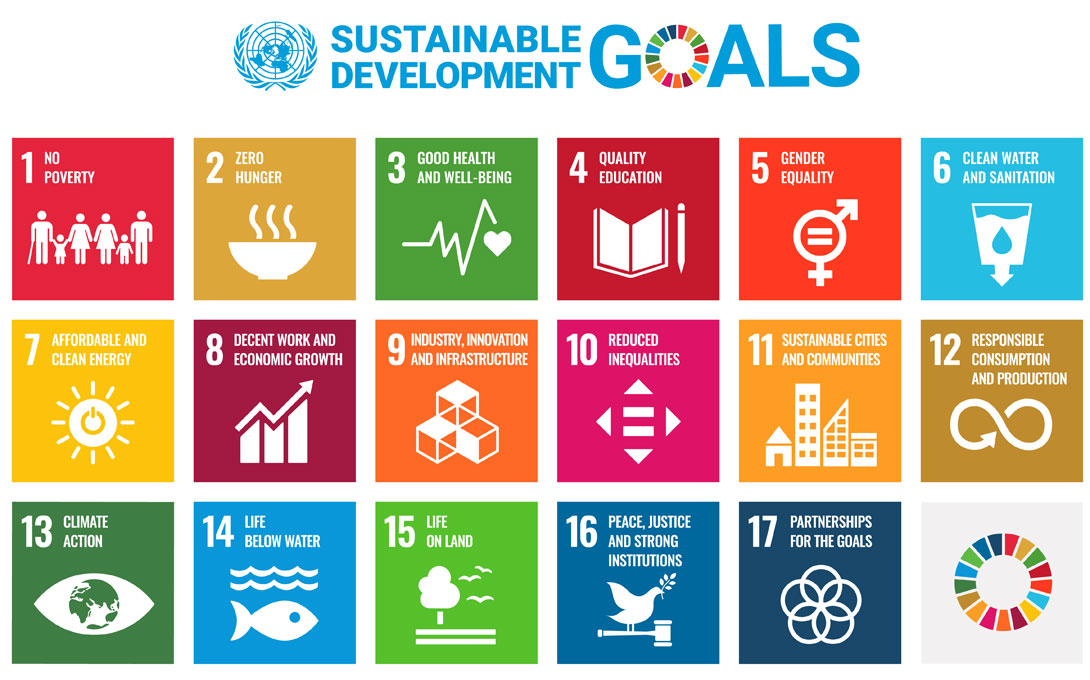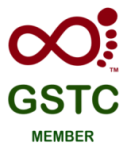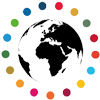How to use the 17 SDGs in tourism
- Team
- Jul, 01, 2020
- Sustainable Tourism
- No Comments
The SDGs as a framework for destinations and tourism companies
Do you want to make your company more sustainable and don’t know where to start and what to do? Why not use the 17 sustainability development goals (SDGs) as a guide and support? They are incredibly helpful and can be used free of charge. Read here which measures you can use easily and effectively.
In 2015 the United Nations published 17 goals for sustainable development. These objectives are designed to help ensure sustainable development globally, taking into account both economic, social and environmental concerns. An important and central component is to ensure that every single person is included and no one is left behind. The task is to ensure that all 17 Sustainable Development Goals are met by 2030 at the latest.
For many destinations and hotels, tour operators and other tourism companies, however, it is difficult to break down these major goals into their own daily operations and make them applicable in their daily business.
We would like to help with this. Northflash is fully committed to the SDGs. We are convinced that they provide an excellent framework that can give structure to sustainable work in destinations and tourism companies and are an excellent tool to manage the destination and a company in a more sustainable way.
In the following, we break down the 17 sustainable development Goals into understandable and easy-to-use steps and measures that make it easy to integrate the goals into daily business.

SDG 1 – No poverty: End poverty in all its forms everywhere
• Support local businesses and thereby secure/create jobs. Focus on supporting companies that pay special attention to offer social fringe groups a chance in the job market.
• Make sure that the prices paid for products and services are fair. Give preference to FairTrade products. The aim is that all businesses can pay their employees a fair salary and that they can live and work safely and with social security.
• Do the same for your own employees, suppliers and partners.
• Donate to aid projects and support education and training projects.

SDG 2 – Zero Hunger: End hunger, achieve food security and improved nutrition and promote sustainable agriculture
• Support people and projects in remote areas, in your local area and in areas where you offer tours, accommodation and other tourist activities.
• The more intensively you work with the local population and local companies, the better income and job opportunities there are locally, so that more people have a secure income and can regularly afford good and healthy food.
• The money invested also supports local agriculture and can help to promote sustainable agriculture, which in turn benefits your guests.

SDG 3 – Good health and wellbeing: Ensure healthy lives and promote well-being for all at all ages
• Support health programs that benefit your employees, your guests and the local community.
• Promote initiatives to reduce child mortality and prevent disease outbreaks.
• Say no to sex tourism and the sexual exploitation of children.
• Support crisis programmes and take preventive measures for possible crisis situations.
• Develop crisis management plans, just in case.

SDG 4 – Quality Education: Ensure inclusive and equitable quality education and promote lifelong learning opportunities for all
• Supporting and employing the local population requires appropriate training. Invest in it. The financing can be secured by income from tourism.
• Numerous tourist activities in an area enable the local population to find jobs in this segment or to become self-employed.
• Meet with the local community and be open to expressed training needs.
• Invest in your employees by regularly training and educating them in the values and benefits of sustainable activities.

SDG 5 – Gender equality: Achieve gender equality and empower all women and girls
• Ensure equal rights for your employees and employ and pay men and women on equal terms.
• Try to promote women and girls, especially in patriarchal areas, and provide them with a good education.
• If necessary, seek dialogue with husbands, fathers, churches and others who wish to prohibit opportunities for the female part of the population.

SDG 6 – Clean water and sanitation: Ensure availability and sustainable management of water and sanitation for all
• Make sure that your tourist activities do not require an excessive amount of water.
• Ensure that your wastewater is sufficiently treated so that it cannot cause damage to the environment and health.
• Pay attention to the keeping of hygiene and if possible use only environmentally friendly certified cleaning agents and do not use them in unnecessarily high quantities.
• If you are expanding or helping to expand the water system, do not only think of your tourist activities, but also include the needs of the local population.
• Train employees and local people accordingly.

SDG 7 – Affordable and clean energy: Ensure access to affordable, reliable, sustainable and modern energy for all
• Use sustainable, fossil-free energy whenever possible.
• Try to use energy as efficiently as possible. Use electronics that consume little energy and switch them off when you don’t need them.
• Measure the energy consumed, set goals before reducing consumption and monitor your success.

SDG 8 – Decent work and economic growth: Promote sustained, inclusive and sustainable economic growth, full and productive employment and decent work for all
• Provide a good and safe workplace and try to focus on the local population at all levels of responsibility when selecting new employees.
• Offer regular training and development opportunities.
• Pay fair wages and offer good working conditions.
• Give all groups of the population equal opportunities in the selection of your employees and partners.
• Work together with local partners and suppliers so that local jobs can be created and secured.

SDG 9 – Build resilient infrastructure, promote inclusive and sustainable industrialization and foster innovation
• Infrastructure development benefits the tourism industry and the local population equally. It also helps the local economy and is a prerequisite for economic development.
• Tourism activities contribute to the income of the local economy.
• Switching to renewable energies for local transport, the use of new and increased number of stations and the expansion of the public transport network also help to achieve greater sustainability.
• Take part in public discussions, promote and support sustainable expansion.
• Do not avoid paying local taxes. These are a necessary part of the official infrastructure planning.

SDG 10 – Reduced inequalities: Reduce inequality within and among countries
• Tourism is a powerful industry that allows standards of equality and inequality to be shifted and redefined.
• Try to take advantage of this by publicly promoting and supporting equal opportunities for all social groups and by making it clear to your own staff that you act accordingly.
• Support local providers who already set an example of equal opportunities.
• Train your employees in anti-discrimination.

SDG 11 – Sustainable cities and communities: Make cities and human settlements inclusive, safe, resilient and sustainable
• Support cultural activities and traditions.
• Promote the greening of city centres and the creation of local recreation areas.
• Advocate the use of sustainable energy in cities and communities.
• Support the formation and strengthening of local partnerships
• Cooperate with the local population and involve them in your plans and activities as much as possible.
• Launch awareness campaigns.
• Certify your destination, respectively your hotel or travel company as sustainable.

SDG 12 – Responsible consumption and production: Ensure sustainable consumption and production patterns
• Use equipment, appliances and vehicles that consume little energy and do not, or as little as possible, harm the environment through waste or exhaust fumes.
• Install tools that monitor and help reduce energy and resource consumption.
• Buy products locally and from suppliers who also try to be as sustainable as possible.
• Raise awareness of the benefits of sustainable consumption and ensure that your employees and partners are involved.
• Inform visitors and guests about your commitment and involve them in your projects.
• Focus on recycling and reuse of products.
• Avoid disposable products of all kinds.
• Help to avoid and reduce food waste.

SDG 13 – Climate action: Take urgent action to combat climate change and its impacts
• Reduce flights to an absolute minimum and if you have to fly, fly directly without a stopover.
• Avoid unnecessary journeys. Combine transports. Hold meetings online.
• Use public transport and bikes for short distances.
• Use sustainable fuels in your vehicle fleet. Favour biogas and hydrogen when available, otherwise use electric vehicles.
• Use modern, fossil-free energy for buildings, for example from wind, water or solar energy.
• Use passive houses and geothermal energy.

SDG 14 – Life below water: Conserve and sustainably use the oceans, seas and marine resources for sustainable development
• Protect all types of water, for example by ensuring that your wastewater is treated sufficiently, according to the highest standards.
• Support measures to protect water and beach areas, as well as wildlife above and below the water.
• Inform employees and guests about these actions.
• Avoid plastic products and especially disposable products. Plastic often ends up in very small particles in waters and seas.

SDG 15 – Life on land: Protect, restore and promote sustainable use of terrestrial ecosystems, sustainably manage forests, combat desertification, and halt and reverse land degradation and halt biodiversity loss
• Support projects that aim to protect wildlife. Do not buy or sell products that endanger biodiversity.
• Help to avoid the keeping and exploitation of wild animals in zoos, animal parks, aquariums etc.
• Try to avoid garbage as far as possible, respectively reduce it.
• Avoid disposable products of all kinds.
• Separate garbage and make sure that it is disposed of professionally and can ideally be recycled.
• Buy sustainably produced products.
SDG 16 – Peace, justice and strong institutions: Promote peaceful and inclusive societies for sustainable development, provide access to justice for all and build effective, accountable and inclusive institutions at all levels
• Support and promote human rights organisations.
• Invest money sustainably and responsibly so that companies that violate human rights are not indirectly supported.
• Support diversity projects.
• Speak up for tolerance.
• Hire local labour.
• Advocate for the observance of human rights in all areas of your business environment.
• Prevent corruption and bribery. Speak out against money laundering.
• Work for good relations with local people, local organisations, authorities and partners.
• Be transparent in your business dealings.
SDG 17 – Partnerships for the goals: Strengthen the means of implementation and revitalize the global partnership for sustainable development
• Promote collaboration with partners, suppliers, governments, organizations and others.
• Create new partnerships, even with competing organizations, to pursue common goals.
• Create and maintain international cooperation.
• Join international organisations, such as globally operating certification bodies, interest groups and the like.
• Work with educational institutions to educate local communities, staff and guests about sustainable tourism.
• Support cooperation among your stakeholders.






